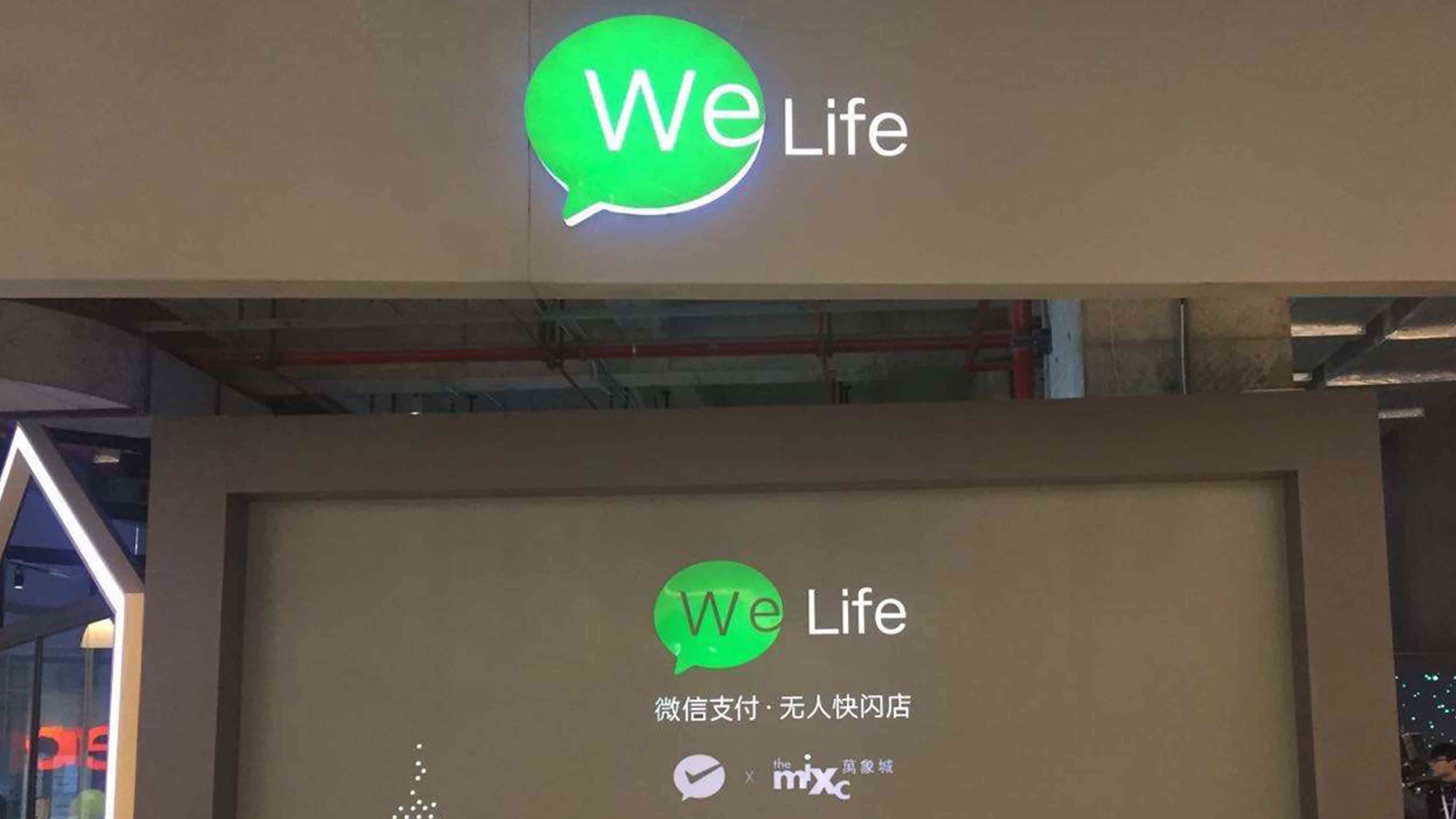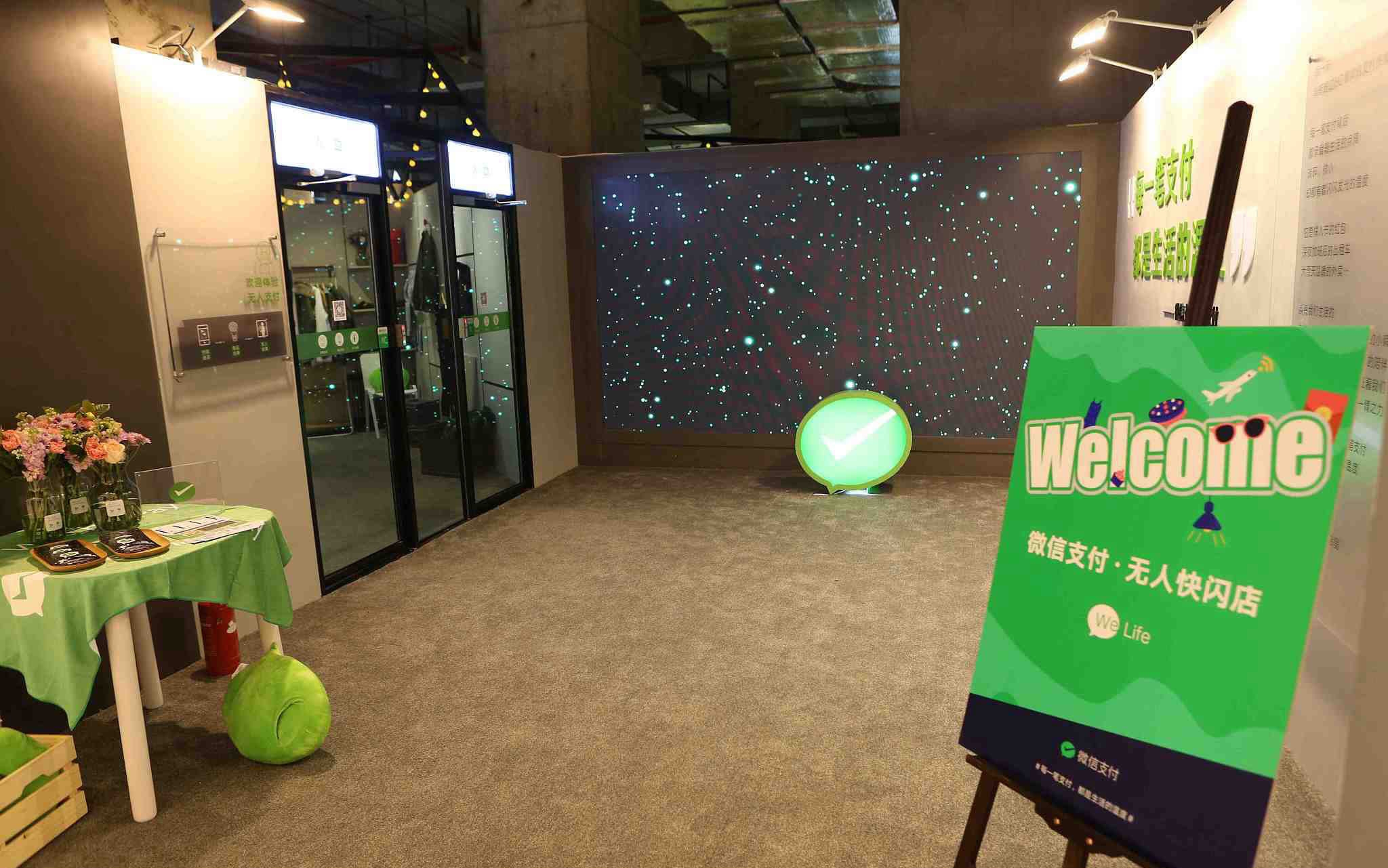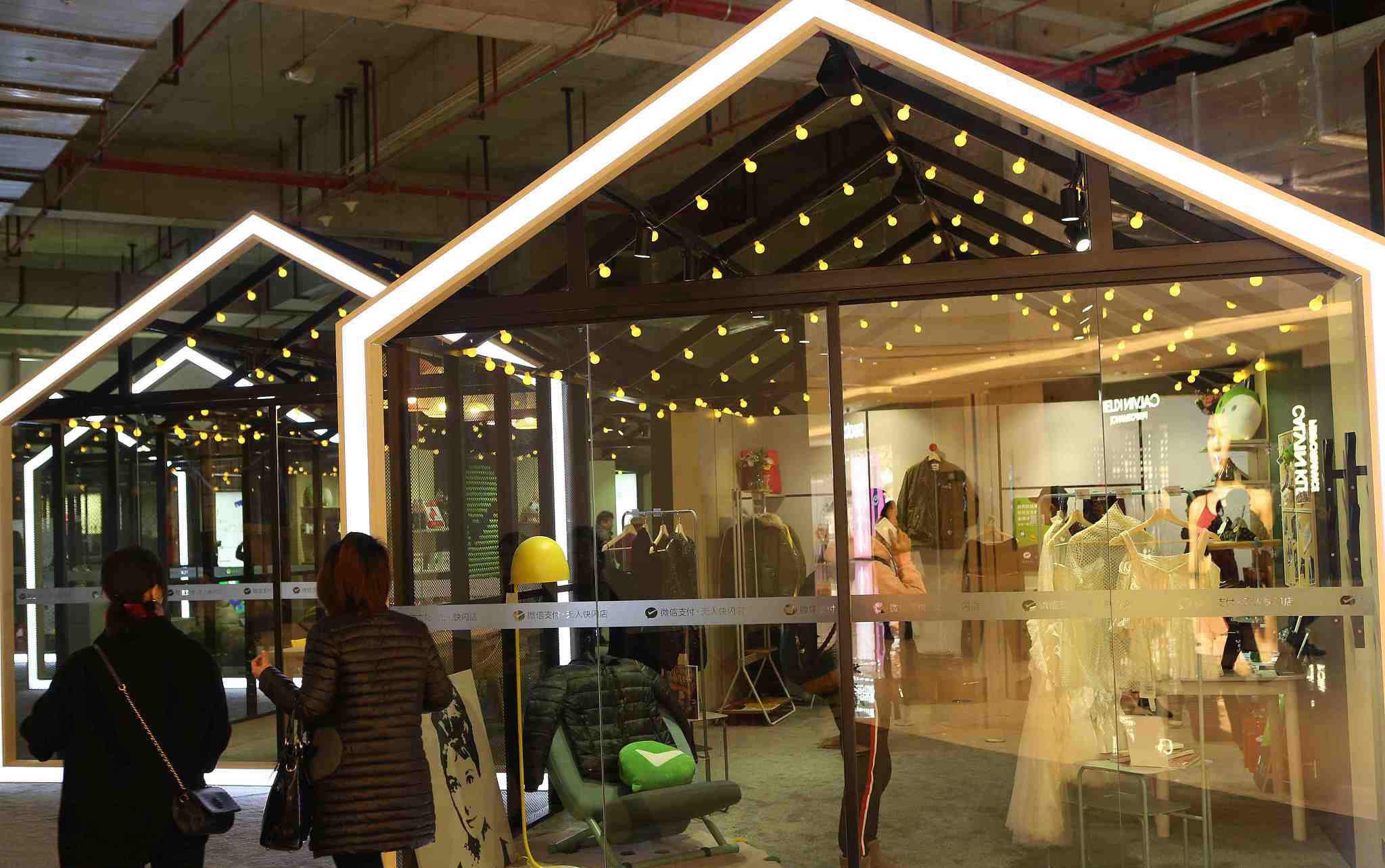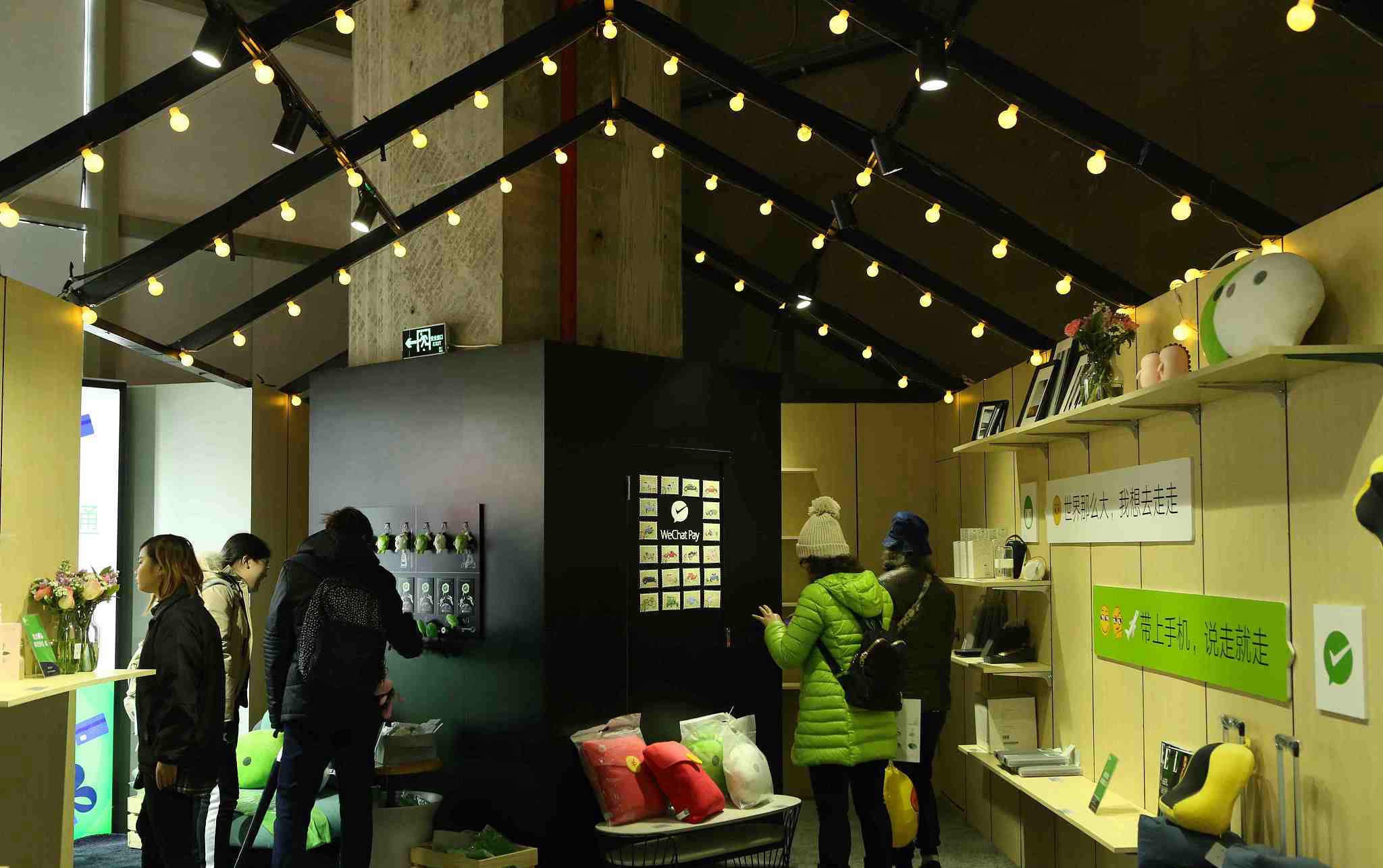
Tech & Sci
22:03, 21-Jan-2018
WeChat opens unmanned convenience store in Shanghai
By Chen Xiaoshu

WeChat opened its first unmanned convenience store in Shanghai on Friday, marking the first time that China's Internet giant Tencent has stepped into the unmanned retail business industry.
More than 800 million WeChat users have linked the app to their bank accounts. WeChat described their first self-service retail shop as a "flash mob" store.
All a customer has to do to is open WeChat, scan the QR code for identification, and choose a form of payment. It takes less than 10 seconds to enter WeChat's new self-service store.

Entrance of the new WeChat's unmanned convenience store. /VCG Photo
Entrance of the new WeChat's unmanned convenience store. /VCG Photo
The whole shopping process is a take-it-and-go autonomous experience. At the exit, sensors automatically scan the products' price information.
Bai Zhenjie, director of WeChat payment retail, said, "Only those who have real name authentication and open payment codes are able to enter the store to buy the products. Besides, a second confirmation is needed at the end of the purchasing process. One cannot go out if payment fails."
The WeChat self-service store will close after two to four weeks. That's why it's called a "flash mob" store.

The exterior of WeChat's unmanned convenience store /VCG Photo
The exterior of WeChat's unmanned convenience store /VCG Photo
The company intends to sell basic commodities in the stores. Facial recognition technology will also be introduced in future unmanned stores.
Ever since retailing giant Amazon introduced the grab-and-go unmanned convenience stores in 2016, the concept has been gaining popularity, especially in China, where many consumers already use mobile payment apps.
Last year, unmanned convenience store chains F5 Future Store and BinguoBox received 130 million yuan in financing. And China’s Internet giant Alibaba unveiled its very first unmanned supermarket Tao Cafe.

Inside the shop. /VCG Photo
Inside the shop. /VCG Photo
However, unmanned stores are still in the early testing phase with technologies involved far from being mature.
Most of China's estimated 100,000 convenience stores still rely on trained personnel. But automated service technologies have been promising.
It is estimated that the market for unmanned stores will reach 950 billion yuan by 2022.
1071km

SITEMAP
Copyright © 2018 CGTN. Beijing ICP prepared NO.16065310-3
Copyright © 2018 CGTN. Beijing ICP prepared NO.16065310-3